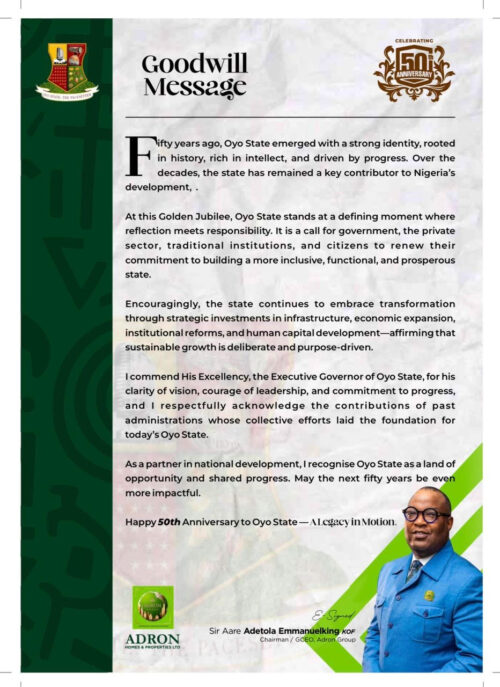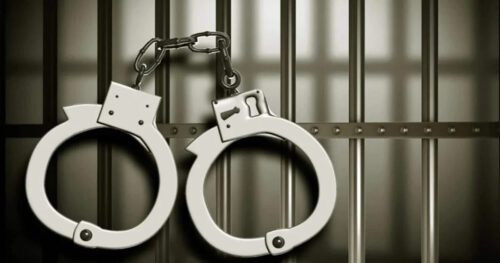The Economic and Financial Crimes Commission (EFCC) has established a 7,000-man special task force across its 14 zonal commands to crack down on dollar racketeers in an effort to relieve pressure on the naira.
In a statement released on Wednesday in Abuja, the anti-graft agency’s spokesperson, Dele Oyewale, stated that the commission had called the owners of private colleges and other institutions that charge tuition in dollars.
Over the previous few weeks, the value of the naira has declined significantly in relation to the US dollar.
In the past weeks, the naira had plunged from about 900/dollar to over 1,400/dollar at the official market.
The Governor of the Central Bank of Nigeria, Olayemi Cardoso, who appeared before the House of Representatives on Tuesday, disclosed that Nigerians spent $98bn in 10 years on foreign education, healthcare and personal travels, which had impacted the naira.
He spoke against the backdrop of the central bank’s battle to stabilise the exchange rate amid dollar shortage.
Cardoso argued that the foreign exchange market was facing increased demand pressures, causing a continuous decline in the value of the naira.
According to him, factors contributing to this situation include speculative forex demand, inadequate forex due to low remittance of crude oil earnings to the CBN, increased capital outflows, and excess liquidity from fiscal activities.
To address exchange rate volatility, he said a comprehensive strategy had been initiated to enhance liquidity in the forex market.
This includes unifying FX market segments, clearing outstanding FX obligations, introducing new operational mechanisms for Bureau De Change operators, enforcing the Net Open Position limit for commercial banks, and adjusting the remunerable Standing Deposit Facility cap.
Cardoso revealed that between 200 and 2020, foreign education expenses amounted to a substantial $28.65bn, as per the CBN’S publicly available Balance of Payments Statistics.
Similarly, medical treatment abroad incurred around $11.01bn in costs during the same period. Within the same period, Personal Travel Allowances accounted for a total of $58.7bn.
Cumulatively, Nigerians spent about $98bn on foreign trips, medical tourism and overseas education, a figure the CBN governor said was more than the total foreign exchange reserves of the central bank.
Further compounding the situation, according to Cardoso, has been the consistent decline in Nigeria’s export earnings against the backdrop of increasing imports.
In contextualising the problem, Cardoso pointed out that Nigeria’s annual imports, which require dollars for payment, amounted to $16.65bn in 1980.
Worried by the development, the Finance Minister and Coordinating Minister for the Economy, Wale Edun, had last Friday met with the CBN Governor and the EFCC Chairman, Ola Olukoyede, to proffer solutions to the naira crisis.
The meeting, according to a statement signed by the Federal Ministry of Finance, was to strategise on stabilising the beleaguered currency.
“This afternoon at Finance HQ, HM Finance & Coordinating Minister for the Economy, Wale Edun, EFCC Chairman Ola Olukoyede and CBN Governor Olayemi Cardoso, engaged in a strategic discussion focused on enhancing the efficiency of our financial system and stabilising the naira,’’ the finance ministry posted on its X handle.
To strengthen the national currency and stabilise the nation’s volatile exchange rate, the CBN directed Deposit Money Banks to sell their excess dollar stock latest February 1, 2024.
The CBN, which made the disclosure in a new circular released last week Wednesday, also warned lenders against hoarding excess foreign currencies for profit.
According to officials, the central bank believes some commercial banks hold long-term foreign exchange positions to enable them to profit from the volatile movements of exchange rates.
The new circular introduces a set of guidelines aimed at reducing the risks associated with these practices.
In continuation of the targeted measures, the EFCC revealed it had set up a special task force to enforce the extant laws against currency mutilation and dollarisation of the economy.
It explained that it arrested some perpetrators issuing invoices in dollars and mutilating the naira in Lagos and Rivers States.
Oyewale said, “The EFCC has raised a special task force in all its zonal commands for the enforcement of extant laws against currency mutilation and dollarization of the economy.
“The taskforce, inaugurated by the Executive Chairman of the commission, Ola Olukoyede, was raised to protect the economy from abuses, leakages and distortions exposing it to instability and disruption.
“Already, the commission has made some arrests of perpetrators of issuance of invoices in dollars and mutilation of the naira in Lagos and Port Harcourt.
“Also, proprietors of private universities and other institutions of higher learning charging fees in dollars have been invited by the Commission.
“The commission is committed to the enforcement of all laws in place for the reflation and stimulation of the economy.”
The CBN Act, 2007, stipulates that the currency notes issued by the CBN “shall be the legal tender for the payment of any amount in Nigeria.”
Furthermore, the Act stipulates that any person(s) who contravenes this provision is guilty of an offence and shall be liable on conviction to a prescribed fine or six months imprisonment.
Meanwhile, findings (according to The Punch) show the EFCC special task force is operating in all its 14 commands with over 7,000 operatives or about 500 operatives in each command.
The zonal commands are Abuja, Benin, Enugu, Gombe, Ibadan, Ilorin, Kaduna, Kano, Lagos, Maiduguri, Makurdi, Port Harcourt, Sokoto and Uyo.
A source, who was not authorised to speak on the issue, revealed that all private universities and other tertiary institutions charging dollars and other foreign currencies in place of naira had been invited by the EFCC for a briefing, and sensitised on the fact that only the naira is a legal tender in Nigeria.
A second source, who declined to be named for confidential reasons, said the school proprietors would not be arrested by the EFCC unless they continued to violate the law by accepting foreign currency.
He stated, “The Special Task Force is operating in all our 14 commands, and we have about 500 operatives in each command’s task force; that equals over 7,000 operatives overall.
“We invited, quizzed, and sensitised all the proprietors of all private universities and other tertiary institutions charging dollars and other foreign currencies in place of naira.
“The aim of the sensitisation was for them to know about extant laws making only naira and kobo legal tenders in Nigeria, as opposed to dollar, pounds, or other foreign currency.
“However, none of the proprietors would be steered or prosecuted for now, unless they go ahead to keep charging in dollars or other foreign currencies.”
However, the President of the Association of Foreign Airlines and Representatives in Nigeria, Dr Kingsley Nwokoma, said there was no cause for alarm, adding that the EFCC’s action would not affect his members.
But he asked banks to repatriate the trapped funds from tickets sold in naira.
Meanwhile, reacting to the development, the Director-General of the Nigeria Employers’ Consultative Association, Mr. Wale Oyerinde, said, “From what we’ve heard as contained in the CBN Act, dollarisation is an economic offence, so they are on point. It is not whether it will salvage the economy or not. Salvaging the economy requires a multifaceted approach and efforts.
Also speaking, a facilitator with the Nigerian Economic Summit Group, Dr. Ikenna Nwaosu, said, “The answer first would be that a doctor heal yourself. Many government agencies are still charging in foreign currency. If you look at the Nigerian Ports Authority, the Nigerian Maritime Administration and Safety Agency, most of their fees are in dollars for all their services. They issue invoices in dollars. So when your own government agencies have not stopped why are you telling individuals not to charge in dollars. So I can’t say whether it would work or not because they government is not complaint. If you want to do uniform let it get to everywhere. I want to add that if you are saying that you are promoting investment in the country, you have to lead by example.”
Also, the President, Association of Bureau De Change, Aminu Gwadabe, said it was illegal for businesses or individuals in Nigeria to demand payment in forex.
He noted that allowing such would further weaken the embattled naira.
“It is illegal to ask for payment of whatever sort in foreign currency here in Nigeria. The CBN already issued a circular to this effect. Allowing institutions to receive payment in dollars will further cause more damage to the naira which is already depreciating,” he said.
Recently, some schools have reportedly requested for tuition fees in forex. An example of such is Wigwe University, a private university reportedly owned by Group Managing Director, Access Holdings Plc, Mr. Herbert Wigwe.
According to document published on its website (https://www.wigweuniversity.edu.ng/tuitionfess/) Wigwe University‘s 2024/2025 College of Arts students are expected to pay $12,000 annually as tuition fee; College of Engineering, $15,000; College of Management and Social Sciences, $15,000; and College of Science and Computing, $15,000.
Credit: The Punch


 NEWS3 days ago
NEWS3 days ago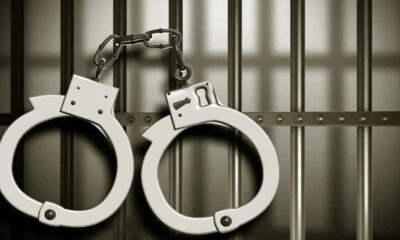
 BIG STORY2 days ago
BIG STORY2 days ago
 NEWS3 days ago
NEWS3 days ago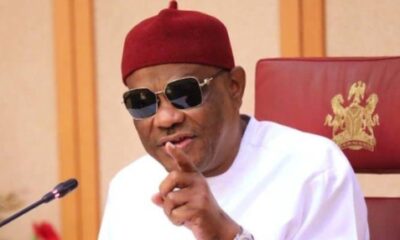
 BIG STORY4 days ago
BIG STORY4 days ago
 BIG STORY3 days ago
BIG STORY3 days ago
 BIG STORY5 days ago
BIG STORY5 days ago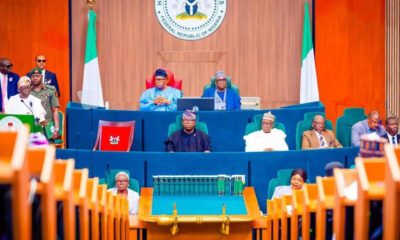
 BIG STORY4 days ago
BIG STORY4 days ago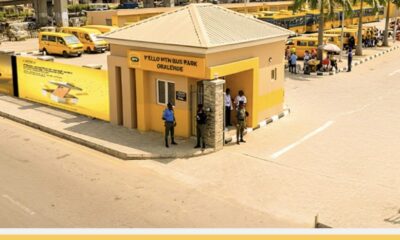
 BIG STORY5 days ago
BIG STORY5 days ago


















